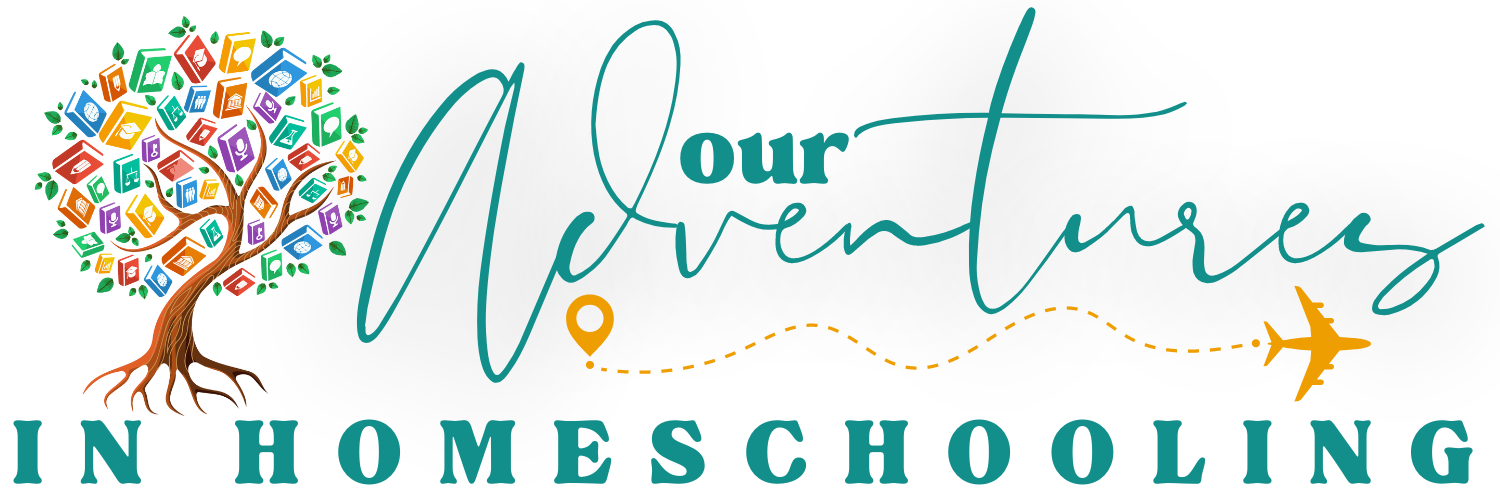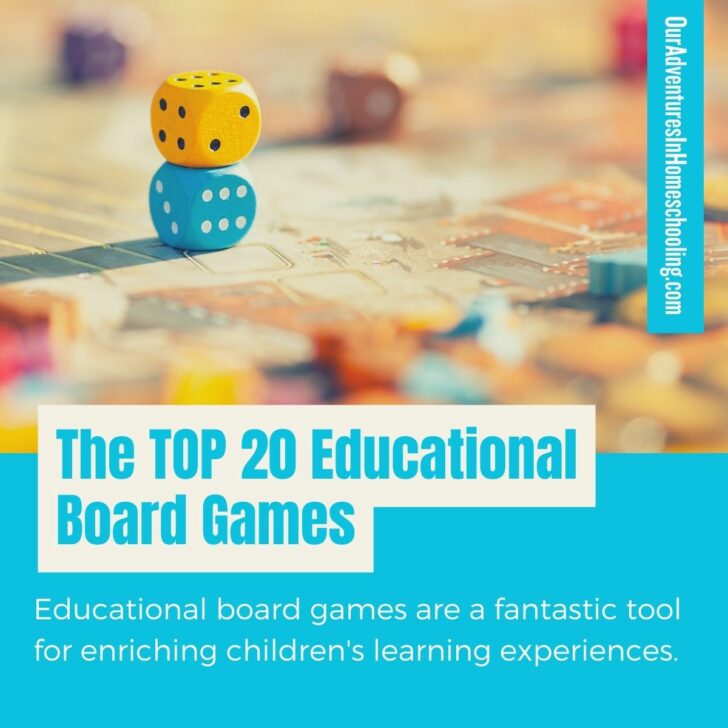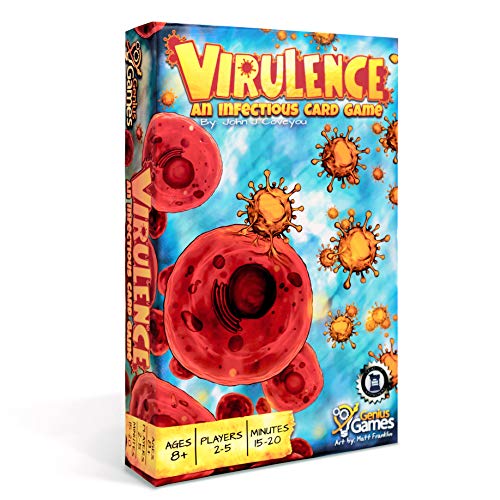In today’s digital age, where screens and gadgets are an ever-present part of our lives, it’s refreshing to see that traditional board games are still going strong. What’s even more exciting is the growing recognition of the educational benefits that these games bring to children.
If you’ve been around here much, you know I’m a big proponent for gameschooling! In fact, I wrote a whole blog post about the benefits of gameschooling for kids.
In this blog post, we’ll explore the world of educational board games, why they are valuable for kids, and highlight some of the top options available for enhancing childhood education.
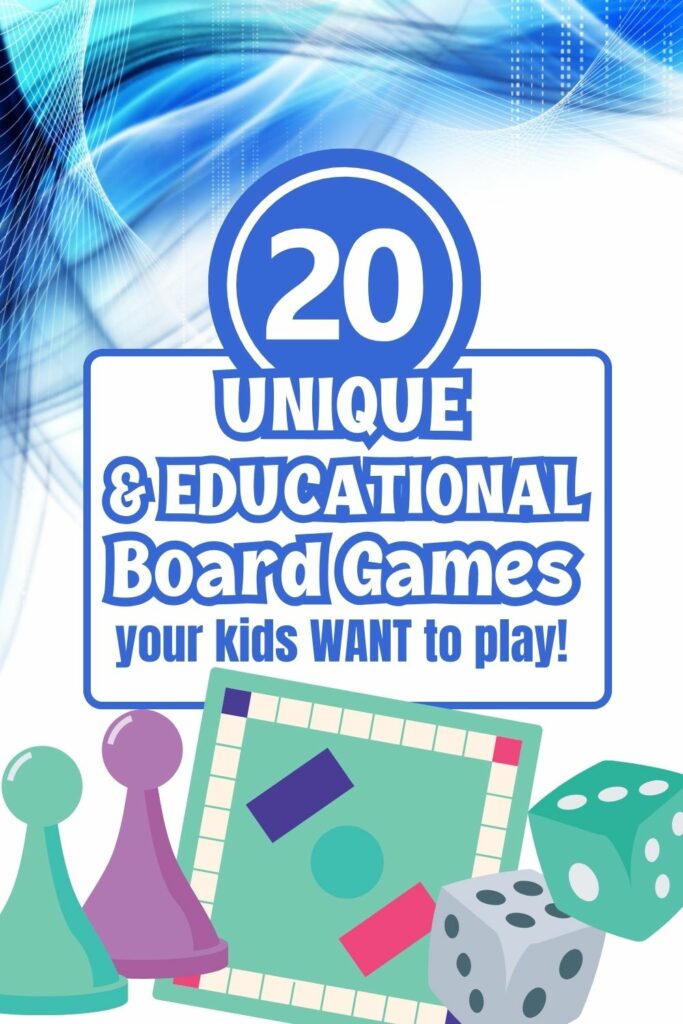



Got a math lover? Check out this list of the BEST Math Board Games for all ages.
Table of Contents
The Educational Value of Board Games
Playing board games might seem like a simple pastime, but it offers numerous educational advantages for kids. Here’s why parents and educators should consider incorporating board games into childhood education:
Critical Thinking
Board games encourage kids to strategize, plan ahead, and make decisions based on the information available to them. These skills are essential for developing critical thinking and problem-solving abilities.
Social Skills
Many board games involve interaction with peers, promoting communication, teamwork, and good sportsmanship. Children learn to take turns, share, and resolve conflicts while enjoying the game.
Math Skills
Board games often require players to count spaces, add or subtract points, and manage resources. These activities provide an enjoyable way to reinforce math skills without feeling like traditional “homework.”
Reading and Vocabulary
Games with written instructions and components help children improve their reading skills and expand their vocabulary. Players have to comprehend rules and communicate with others, enhancing their language abilities.
Memory and Concentration
Board games often involve remembering rules, tracking the progress of the game, and recognizing patterns. These activities promote memory and concentration, which are crucial for academic success.
Adaptability
Games frequently introduce new rules or scenarios, forcing kids to adapt and think on their feet. This adaptability skill is valuable in both academic and real-life situations.
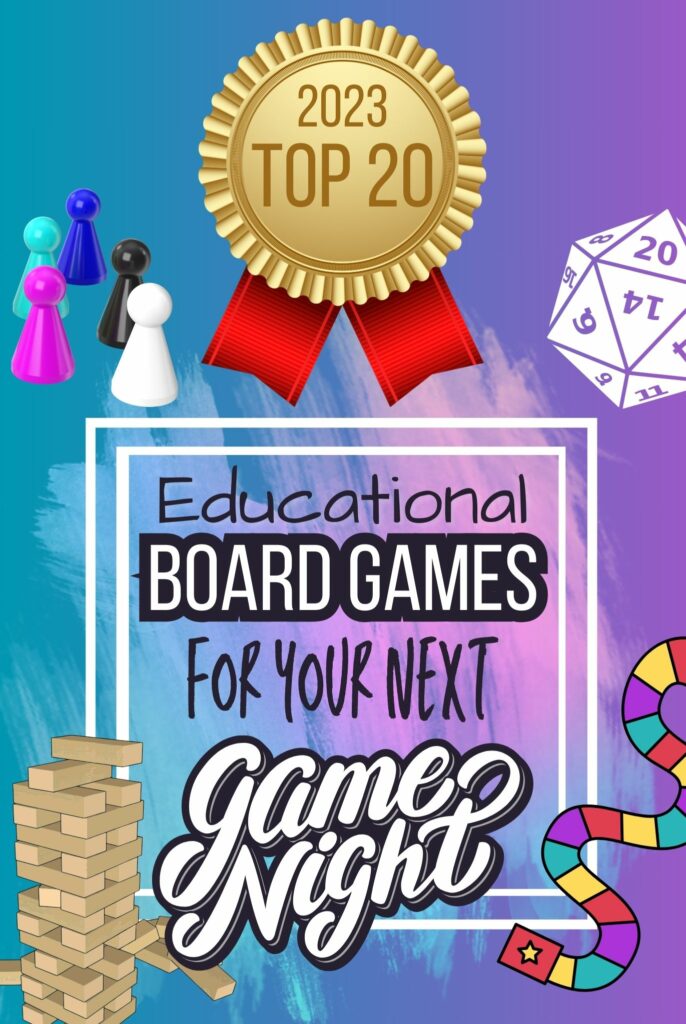



The Benefits of Incorporating Board Games into Childhood Education
Now that we’ve established why board games are educational, let’s delve into the specific benefits of incorporating them into childhood education:
- Learning Through Play
- Board games offer a hands-on and enjoyable approach to learning.
- Children are more likely to engage with educational concepts when they are presented in a fun and interactive manner.
- Enhanced Engagement
- Board games capture children’s attention and keep them engaged for extended periods.
- This level of engagement can lead to better retention of the material being learned.
- Improved Focus
- Playing board games can help children develop patience and concentration.
- These skills are vital for academic success, especially as children transition to more structured learning environments.
- Family Bonding
- Board games create opportunities for family bonding and quality time.
- Engaging in games together fosters positive relationships and communication within the family.
- Educational Reinforcement
- Board games can reinforce what children learn in school.
- They can apply the concepts they’ve learned in a practical context, making the information more relevant and easier to remember.
The Top Educational Board Games for 2023
The TOP Educational Board Games
As research scientists in St. Thomas’ Abbey, where Gregor Mendel discovered modern genetics in the 19th century, you’re tasked with validating the genetic traits of your pea plants to score points.
Recommended Age: 8 and up
1-5 players can play and each game takes 45-75 minutes to complete. Also included is a SOLO MODE for a unique, independent experience.
Organ Attack is a medical and scientific themed card game that is so hilarious and very educational! No need for any medical knowledge to play this game. In fact, kids, teens and adults can learn about the human body and its parts through what disease attacks which organ in just about one round.
Recommended Ages: 8 and up
Players 2-6
First in Flight isn't just a board game; it's an exciting journey that brings aviation history to life. Delve into the early 20th century and embody aviation pioneers like the Wright brothers, Louis Bleriot and more. Immerse yourself in the strategic decisions they faced, as you balance risks and rewards.
Recommended Ages: 14 and up
First in Flight offers different modes suitable for solo play, 2-player and up to 4 players for an engaging group session.
An amazing educational card game based on rock, paper, scissors for families and any lover of dinosaurs ages 5 to 65 million. Learn about fascinating dinosaurs and the mesozoic periods in which they lived.
Recommended Ages: 5 and up
There are multiple ways to play that range in difficulty, so that younger and older players alike can enjoy the challenge.
Learn Chemistry from Periodic, a science game where players move across the periodic table to collect elements using the periodic trends. This game will go great on a learning table in a classroom to teach students about the structure and function of the periodic table of real elements, as well as some of the most fundamental principles in Chemistry!
Recommended Ages: 10-12
Players: 2-6
Dive into the complexities of species interactions, ecological balance, and resource management, mirroring the challenges faced by iconic species like lions, zebras, and elephants; The goal is to create harmonious habitats that maximize the growth of species and landforms, generating points through strategic placements.
Recommended Ages: 8 and up
The game board's central plant cell models how actual plant cells sustain life, converting water and CO2 into carbohydrates in the chloroplast and transforming carbohydrates into ATP in the mitochondria.
Recommended Ages: 5 and up
1-5 players can play and each game takes 60-90 minutes to complete. The included solo mode pits a player against a fast-growing A.I. component, Ivy, and includes an additional board and deck for a unique challenge.
Play as a virus to take over the host cell and collect helicals, icosahedrals, genomes, spherical envelopes just like in biology class.
Recommended Ages: 8 and up
Players: 2 - 5 Time: 15 - 20 mins
Science Concepts covered in Virulence:Structure and components of viruses, genome, helical, icosahedral, spherical envelope, virus replication, vaccines, mutations
Learn about underwater creatures and their habitats in this nature card game! Players use aquatic animals such as sea turtles, sharks, and clownfish in a grid formation in this ecosystem building game; Earn points by aligning ocean life with the habitats and food sources where they most flourish!
Recommended Ages: 8 and up
Players: 1-6
Make mealtime more meaningful with the conversation and vocabulary game that sharpens creative language and expression skills while you learn more about your family and friends!
Recommended Ages: 5 and up
Subatomic is a card drafting strategy game where 2-4 players compete to build point-scoring atoms by playing subatomic particle cards from their unique deck. You can purchase new cards and add them to your deck throughout the game, making everyone’s strategy different. Build atoms like Helium and Beryllium, and gain bonus points for claiming the most of each element.
Recommended Ages: 14 and up
Subatomic is a deck-building game about creating atoms for 2 to 4 players that plays in about 40-60 minutes.
Strategy Card Game - Each round, players take 3 actions; acquiring power plants or fuel (cards), playing those cards, and running their power plants to meet the power-hungry city’s energy needs.
Recommended Ages: 14 and up
Up to 4 Players
A non-partisan game to learn about the United States Electoral College and how the presidency is won.
Election Night is a multiple award winning game, where two players or teams battle for critical electoral votes in a gripping race for the presidency. Use your dice pool to choose products or sums that could help you the most. Strategically target key states with freezes and re-rolls to counter your opponent’s progress, and be quick to adapt strategy as conditions change.
Players will interact and learn the fundamentals of ionic bonding through creating neutrally charged compounds, noble gases, charges, anions and cations, and acids and bases. Science geeks will love playing this game with their classroom, family, and friends in this fast-paced pick-and-pass card game.
Recommended Ages: 8 and up
Ion is a fast-paced card game for 2-7 players spanning around 20-30 minutes.
Tell Her Story - You’re an acclaimed author, writing a book to tell the stories of remarkable women in history. Discover iconic historical women as you do research, draft chapters, and complete the highest scoring book to win!
Recommended Ages: 8 and up
120 Historic Women Feautured
Peptide is strategy card game game, modeled accurately around the process of building a protein chain! Throughout the game, players compete to collect amino acids and the matching mRNA nucleotides, then link those amino acids side by side to increase the length of their protein chain and score points
Recommended Ages: 8-15
Players: 2 - 5
Time: 30-45 minutes
Science concepts covered in peptide: mRNA to protein translation, polypeptide chains, proteins, amino acids, Vacuole, mitochondria, nucleus, ribosome, mRNA, tRNA, ATP
Players build enzymes, hormones, and receptors and play with proteins, carbohydrates, lipids and DNA or mRNA, just like in biology class. This game is great on a learning table in a classroom to teach students about various parts of cell biology, including animal cell organelles, enzymes, and hormones.
Recommended Ages: 10 and up
Players: 2-5
Time: 60-90 Minutes
Meet legendary people and join remarkable events as you try to see all you can before the clock runs out during family game night. Journey through 108 historical events.
Recommended Ages: 10 and up
The Clue Conspiracy game is the secret role game of shifting suspicions! As a guest at the luxe Black Adder Resort, you discover that someone (maybe even you!) wants to murder its manager, Mr. Coral. A series of deadly traps have been planted all over the resort—and someone is armed!
Now you must solve the ultimate mystery: who can you trust? In this strategy game of deception and deduction, players play as Clue characters and take on secret roles on opposing teams: Friends vs. the Conspiracy.
The Friends work to save Mr. Coral and uncover the Who, Where, and What of the Conspiracy's secret Plot. The Conspiracy members try to secretly sabotage the Friends and carry out his murder at a specific location and with a specific weapon. Both teams will also find clues to share—or not! Which side will succeed?
This thrilling strategy game for 4-10 players is a fun group game for ages 14+.
You are a leader of one of the seven greatest cities of the Ancient World. Gather resources, develop commercial routes and affirm your military supremacy. Build your city and erect an architectural wonder which will transcend future times.
Recommended Ages: 10 and up
Average 30 minutes of gameplay with 3-7 players.




